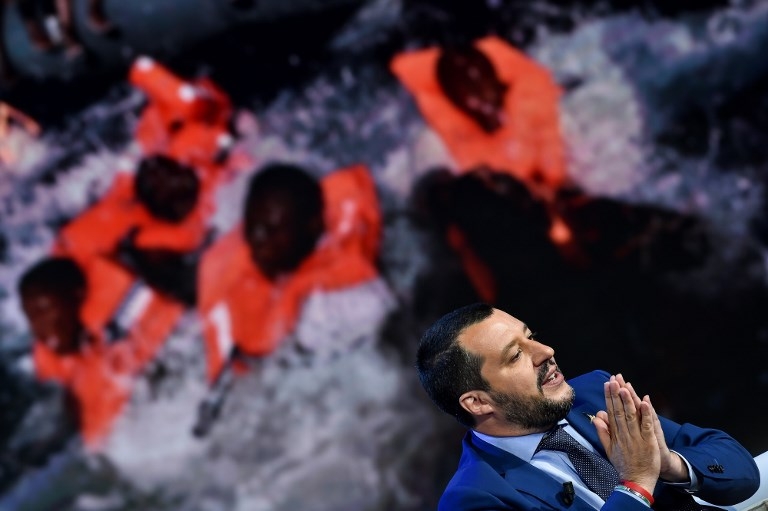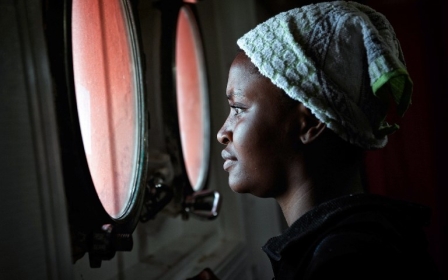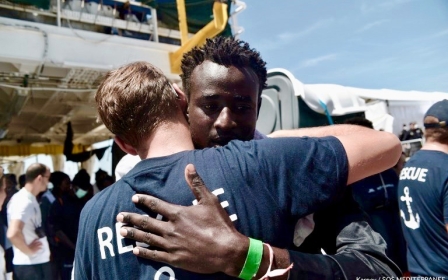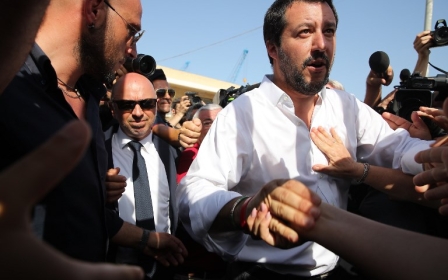Italy says 'arrogant' France could become main enemy on migration

Italy on Saturday said "arrogant" France risked becoming its "No.1 enemy" on migration issues, a day before European leaders convene in Brussels for a hastily arranged meeting on the divisive topic.
In answer to comments by French President Emmanuel Macron, who said migration flows towards Europe had declined compared with a few years ago, Italy's Deputy Prime Minister Luigi Di Maio said Macron's words showed he was out of touch.
"Italy indeed faces a migration emergency and it's partly because France keeps pushing back people at the border. Macron risks making his country Italy's No.1 enemy on this emergency," Di Maio wrote on his Facebook page.
Macron said European cooperation had managed to cut migration flows by almost 80 percent and problems stemmed from "secondary" movements of migrants within Europe.
"The reality is that Europe is not experiencing a migration crisis of the same magnitude as the one it experienced in 2015," the French president said.
"A country like Italy has not at all the same migratory pressure as last year. ... The crisis we are experiencing today in Europe is a political crisis."
But Italy's Interior Minister and Deputy Prime Minister Matteo Salvini said his country had faced 650,000 arrivals by sea over the past four years, 430,000 asylum requests and the hosting of 170,000 "alleged refugees" for an overall cost of more than $5.8bn.
'Arrogant President Macron'
"If for the arrogant President Macron this is not a problem, we invite him to stop insulting and to show instead some concrete generosity by opening up France's many ports and letting children, men and women through at Ventimiglia," he said in a statement, referring to the northeastern Italian town at the border with France.
Macron also said France favoured financial sanctions for EU countries that refuse migrants with proven asylum status.
"You can't have countries that massively benefit from the solidarity of the European Union and that massively voice their national selfishness when it comes to migrant issues," he added, in a clear hint to Hungary, Poland and the Czech Republic, which oppose the EU relocation scheme for asylum seekers.
The fate of the Aquarius rescue ship and its more than 600 migrants sparked a heated debate this month over EU states' responsibilities.
Italy and Malta refused to take in the ship, which was stranded at sea for days before being offered safe haven in Spain. On Saturday, another migrant rescue ship, the MV Lifeline, was waiting in the Mediterranean, having been refused harbour by Italy and Malta.
Migrants seeking to reach Europe were picked up in the hundreds in the Mediterranean on Friday and Saturday.
Spanish authorities said they had rescued nearly 600 migrants trying to make the perilous crossing from Africa, while off the coast of Libya, coastguards recovered bodies of five migrants and picked up 210 survivors, the coastguard said.
The container ship Alexander Maersk picked up 113 migrants from a boat off southern Italy on Friday, the ship owner said. The ship was south of Sicily awaiting further instructions from the authorities.
The French president suggested that additional conditions should be attached to the granting of the EU's structural funds to guarantee the recipients take their share of asylum migrants.
He made the comments after his first meeting with the new Spanish prime minister, Pedro Sanchez, at the Elysee palace.
The leaders agreed that additional detention centres should be opened in Europe to review asylum seekers' applications.
This would come on top of so-called "disembarkation platforms" outside the EU where asylum requests could be assessed before claimants reach Europe.
Middle East Eye propose une couverture et une analyse indépendantes et incomparables du Moyen-Orient, de l’Afrique du Nord et d’autres régions du monde. Pour en savoir plus sur la reprise de ce contenu et les frais qui s’appliquent, veuillez remplir ce formulaire [en anglais]. Pour en savoir plus sur MEE, cliquez ici [en anglais].




